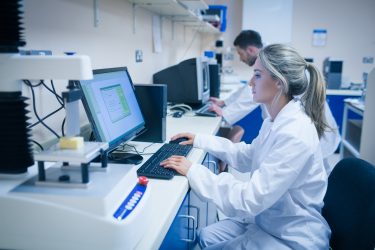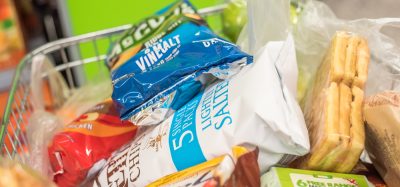The new normal for supply chains
- Like
- Digg
- Del
- Tumblr
- VKontakte
- Buffer
- Love This
- Odnoklassniki
- Meneame
- Blogger
- Amazon
- Yahoo Mail
- Gmail
- AOL
- Newsvine
- HackerNews
- Evernote
- MySpace
- Mail.ru
- Viadeo
- Line
- Comments
- Yummly
- SMS
- Viber
- Telegram
- Subscribe
- Skype
- Facebook Messenger
- Kakao
- LiveJournal
- Yammer
- Edgar
- Fintel
- Mix
- Instapaper
- Copy Link
Posted: 15 June 2020 | Chris Elliott | No comments yet
Professor Chris Elliott ponders on the future of food and drink supply chains as the world eases back into a sense of a normality.


The world’s food supply system is unbelievably complex.
We often have little knowledge about how or where our food was produced – something which I have stated many times before. The past few months have thrown a number of supply chains into chaos, and for many of these it will take a long time to recover, in fact, some may not at all…
I wonder what that recovery will look like; will it be back to business as usual? Based on the discussions I have had with businesses over the last few months, especially with the larger ones, I do not think a ‘return to normal’ is on the agenda.
The hot topics appear to comprise a lot of ‘hows’, including how to:
- Drive the green agenda
- Simplify supply chains
- Source directly from farmers
- Improve auditing
- Ensure the integrity of supply chains.
I do believe, perhaps naively, that massive good can come from the disruptions caused to supply chains, and that in the future, COVID-19 will be viewed as the great accelerator of change. Change for the good.


Perhaps, through my narrow lens as a scientist, I can only really see the role that science and technology can play in the supply chain revolution. However, I want to spend the rest of this article outlining what innovations I can see coming.
I believe that in order to achieve supply chains with the highest degree of integrity total transparency is required. This includes the accurate measurement of the environmental footprint, monitoring the use of agrichemicals, checking that safe and authentic food is being produced, and respecting livestock, our planet and all those who work in the supply chains.
I am a hard core metrologist (a scientist that likes to measure things!) and I have a very good understanding of what needs to be measured and how to do it. Indeed, I have the aspiration to turn my research laboratory at Queen’s University into a Centre of Excellence for these forms of metrology. But all of this data that will be generated needs to be available across supply chains and thus, the role of digitisation is crucial.
Over the past few months, I can see more and more interest from food companies in the exploitation of digital technologies. And food businesses are not alone in this endeavour; I understand that the large auditing organisations, who have faced massive issues during COVID-19, will be embracing remote inspections where information will be uploaded onto their own platforms. My warning to them is not to forget the importance of metrology ie, the science that will ensure the data they obtain is reliable, accurate and verifiable.


So who benefits from all this innovation? My hope, and indeed strong belief, is that there will be many winners. Farmers will be much more likely to earn a living wage, companies who operate along supply chains will be able to make quicker and better informed decisions, thus driving their profitability. And of course, the consumer will ultimately benefit. They will be better informed about how their food is produced, where it comes from, and will be able make purchasing decisions based on this increased transparency which will come as part of the new normal.
Related topics
COVID-19, Data & Automation, Equipment, Food Safety, Research & development, Supply chain, Technology & Innovation, The consumer, Traceability, Trade & Economy








